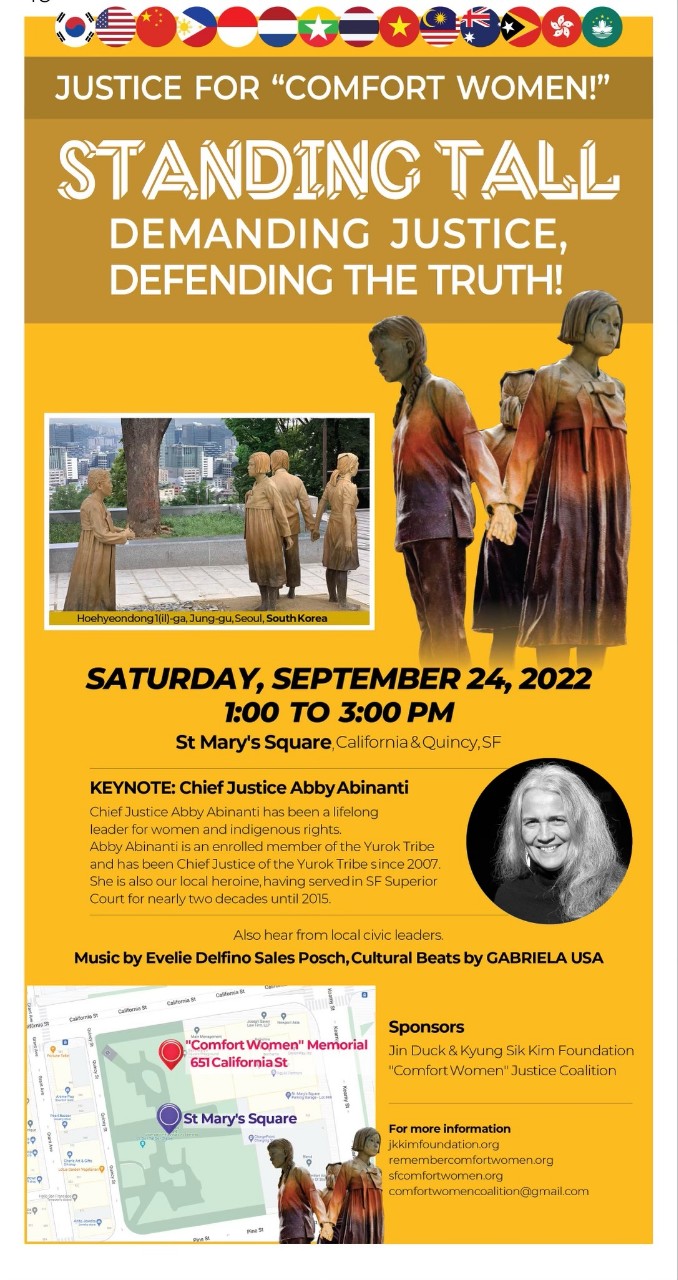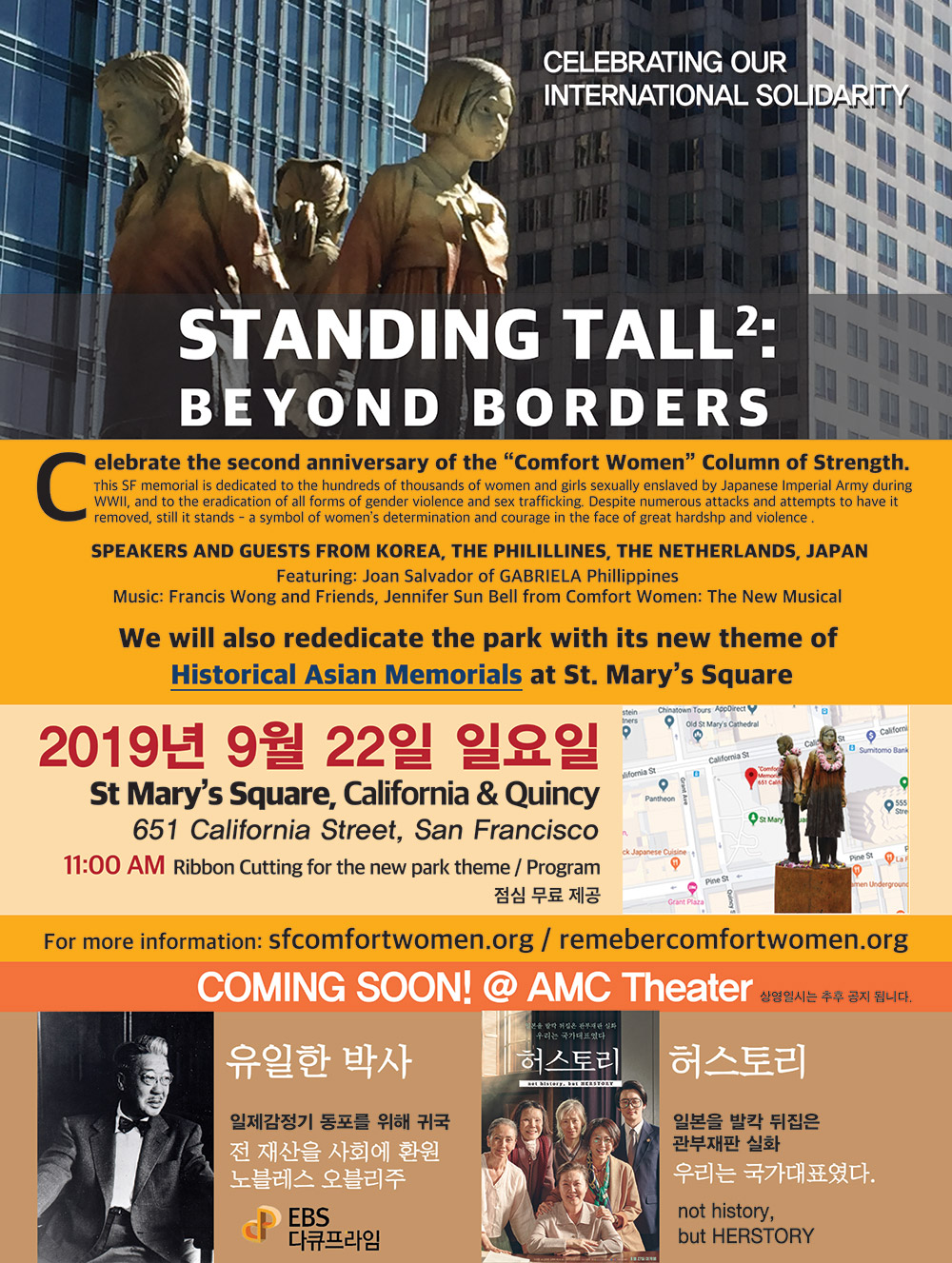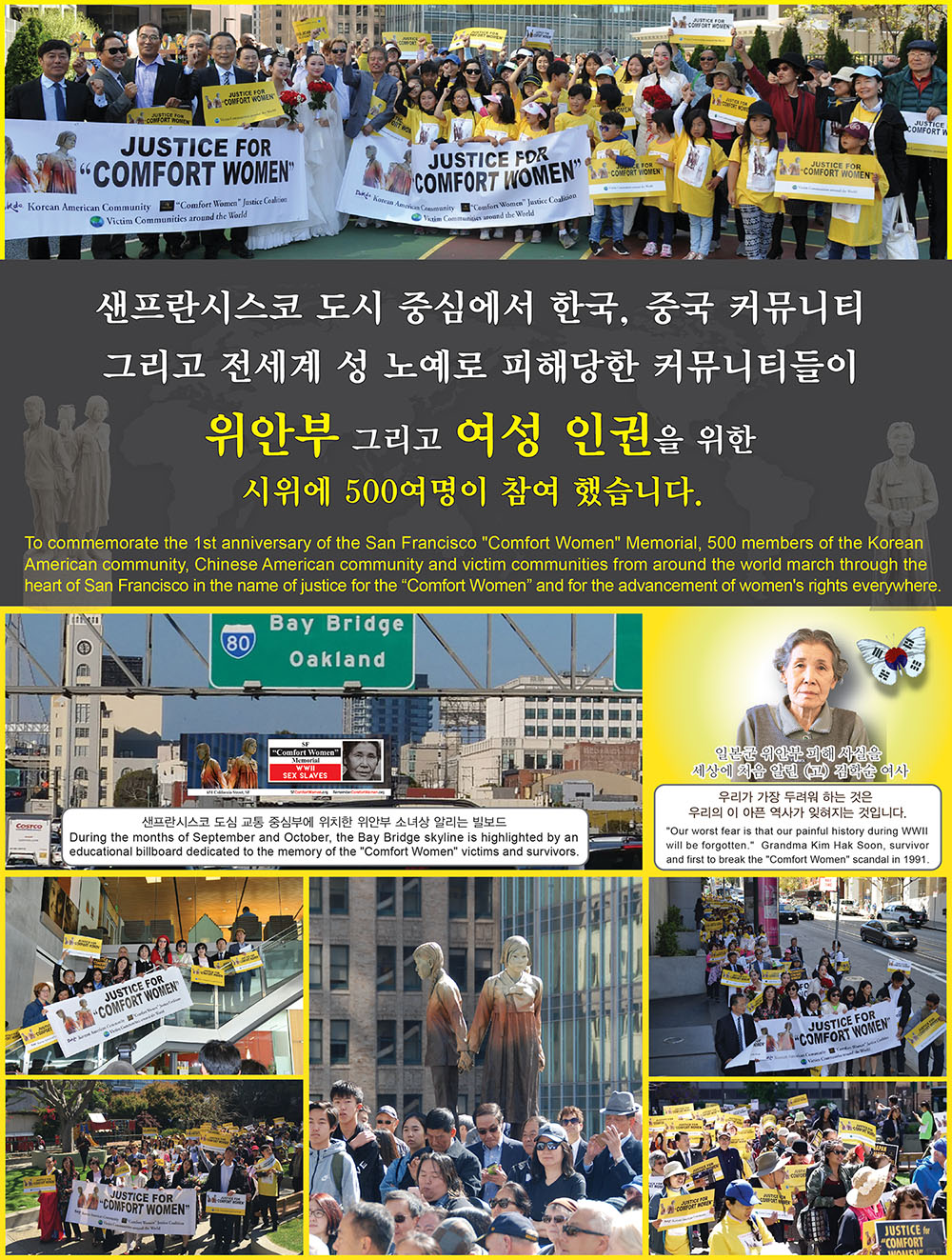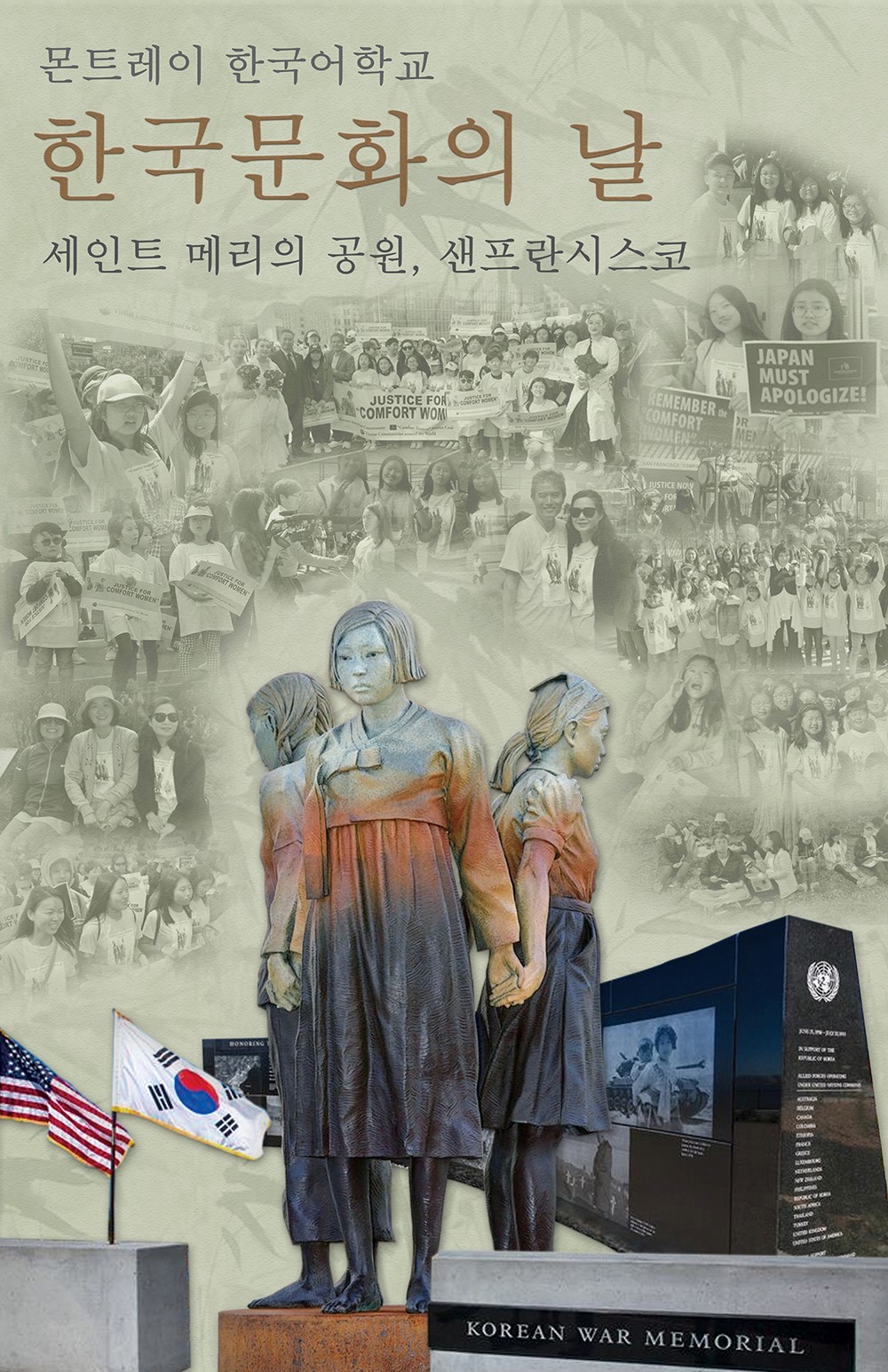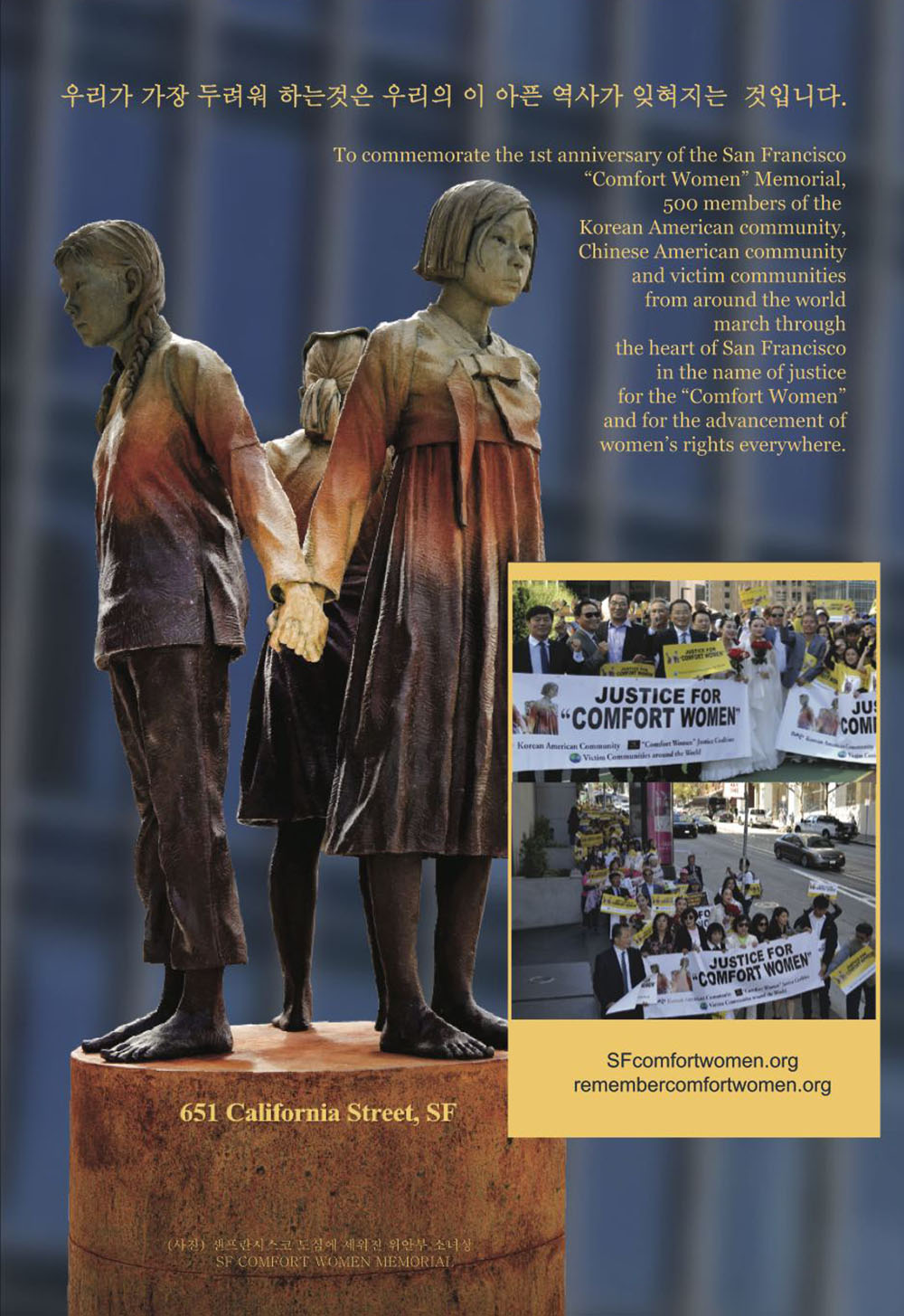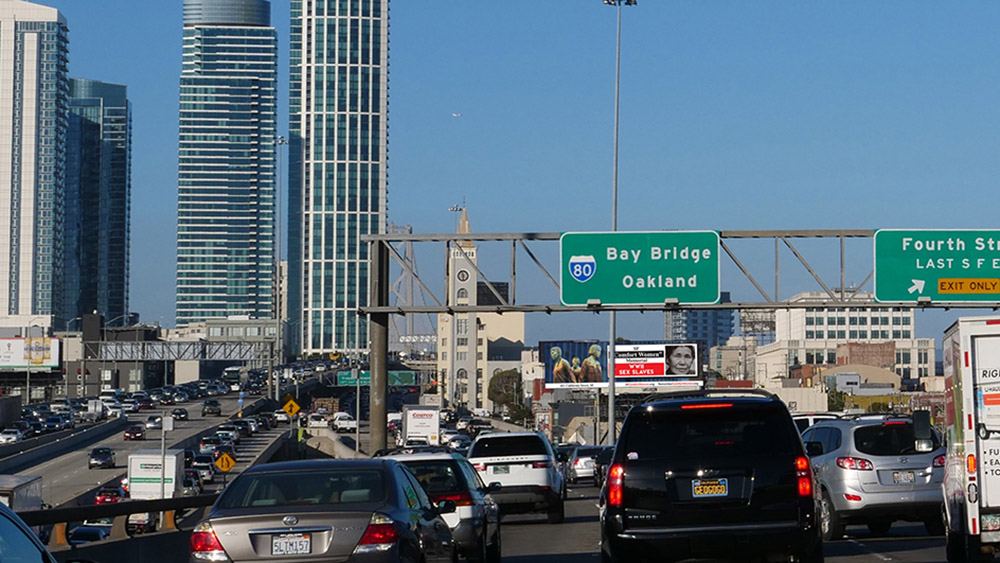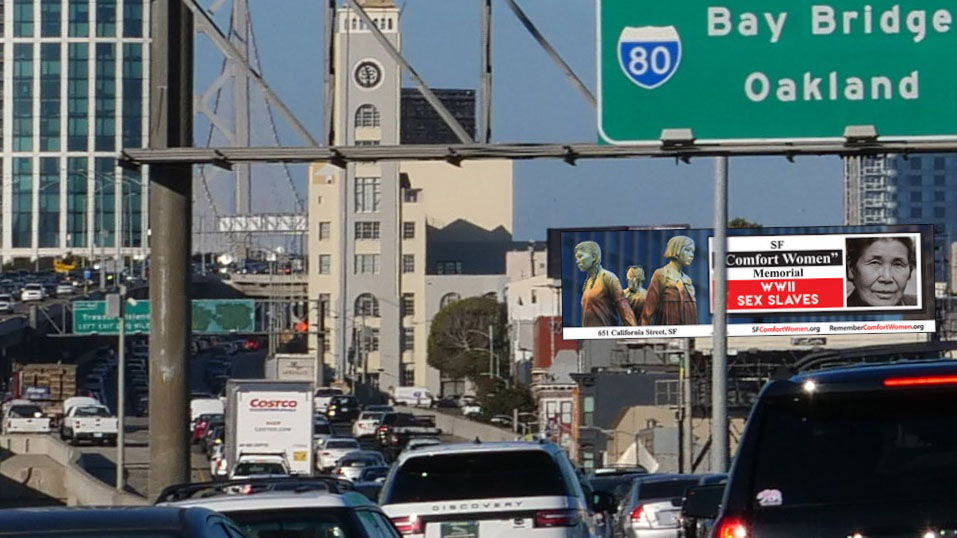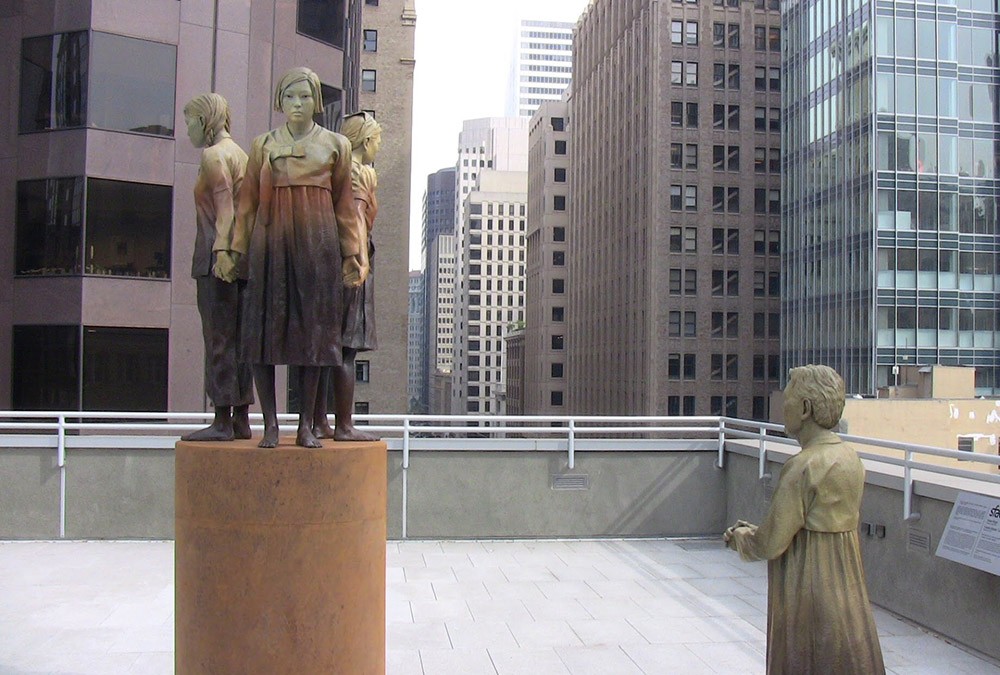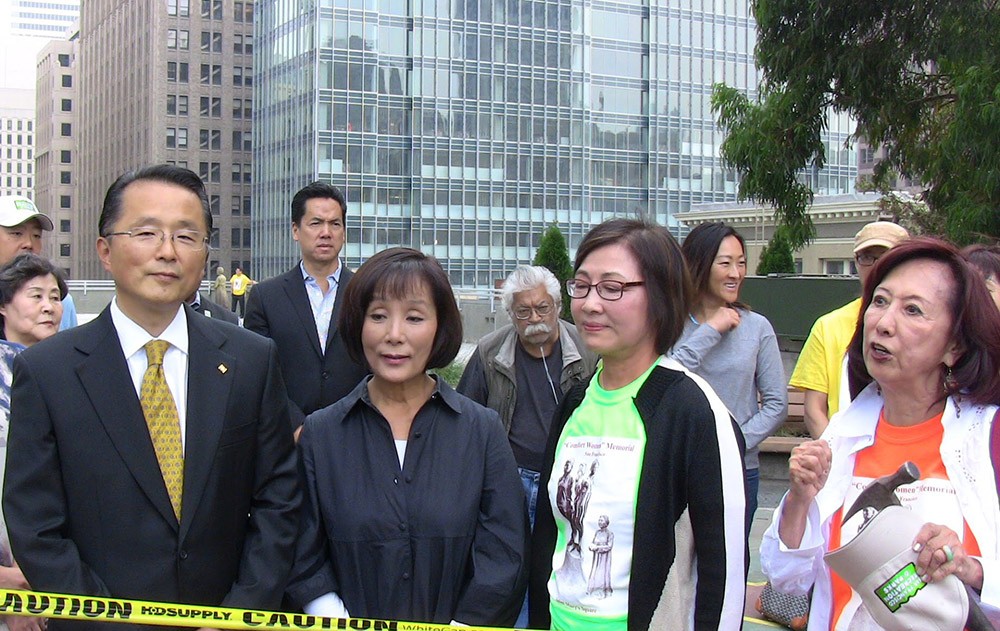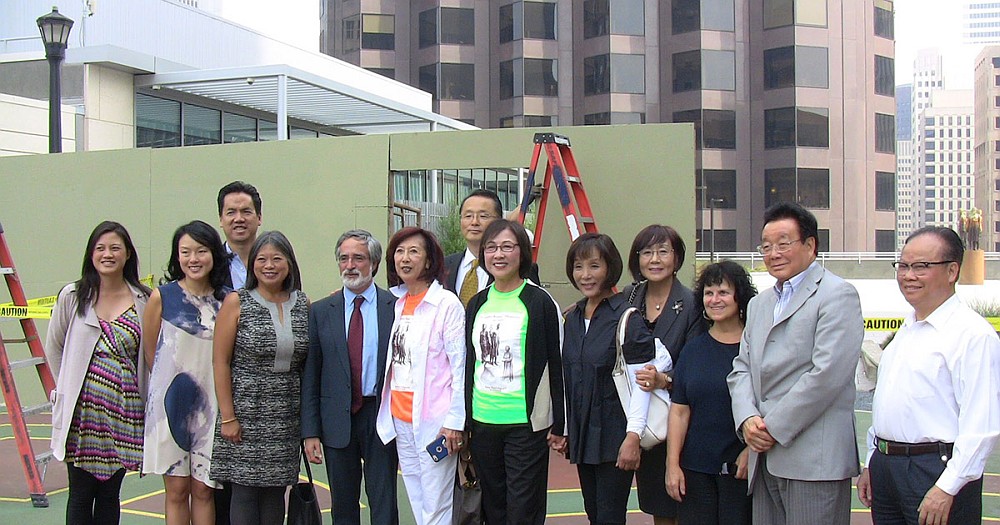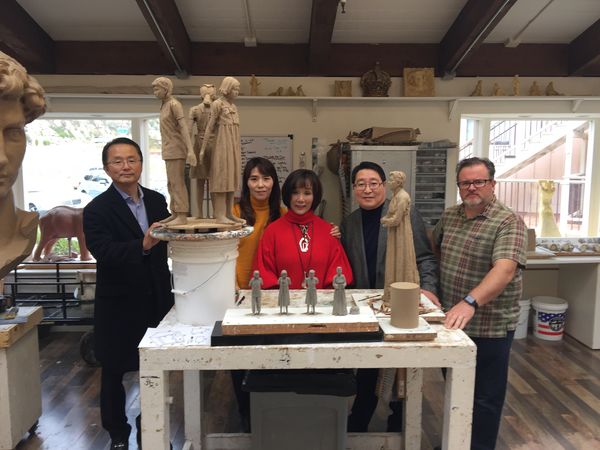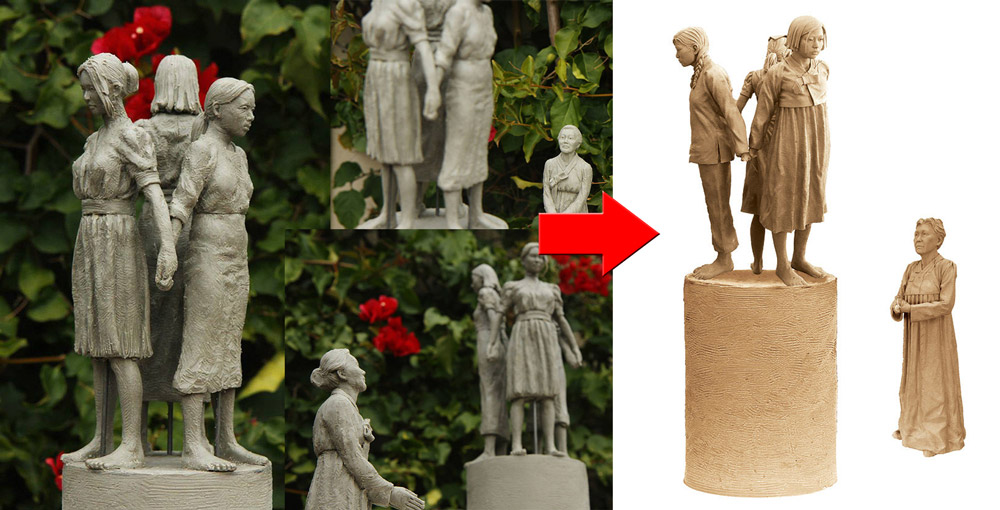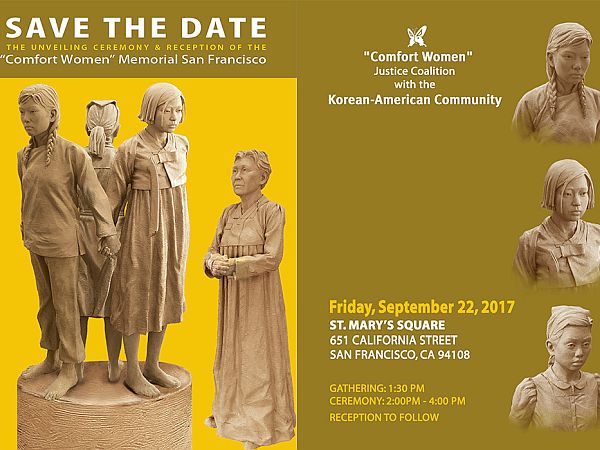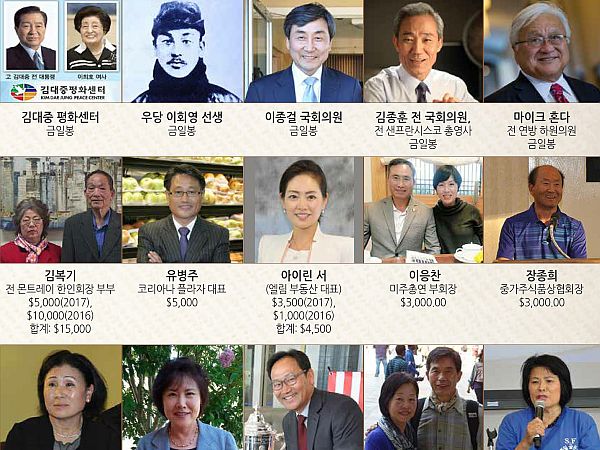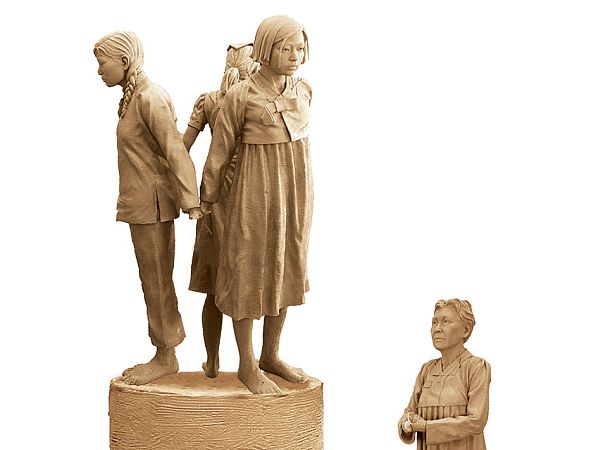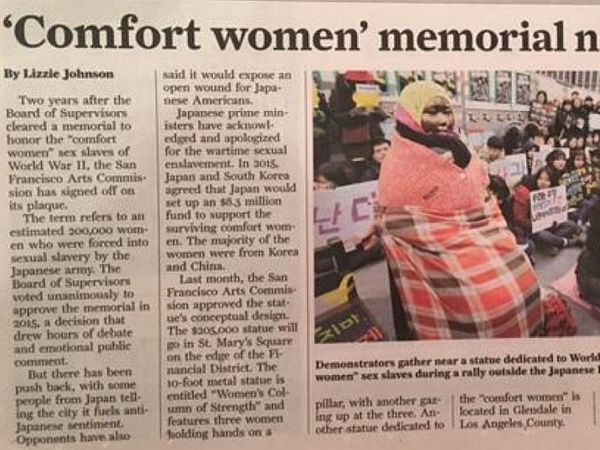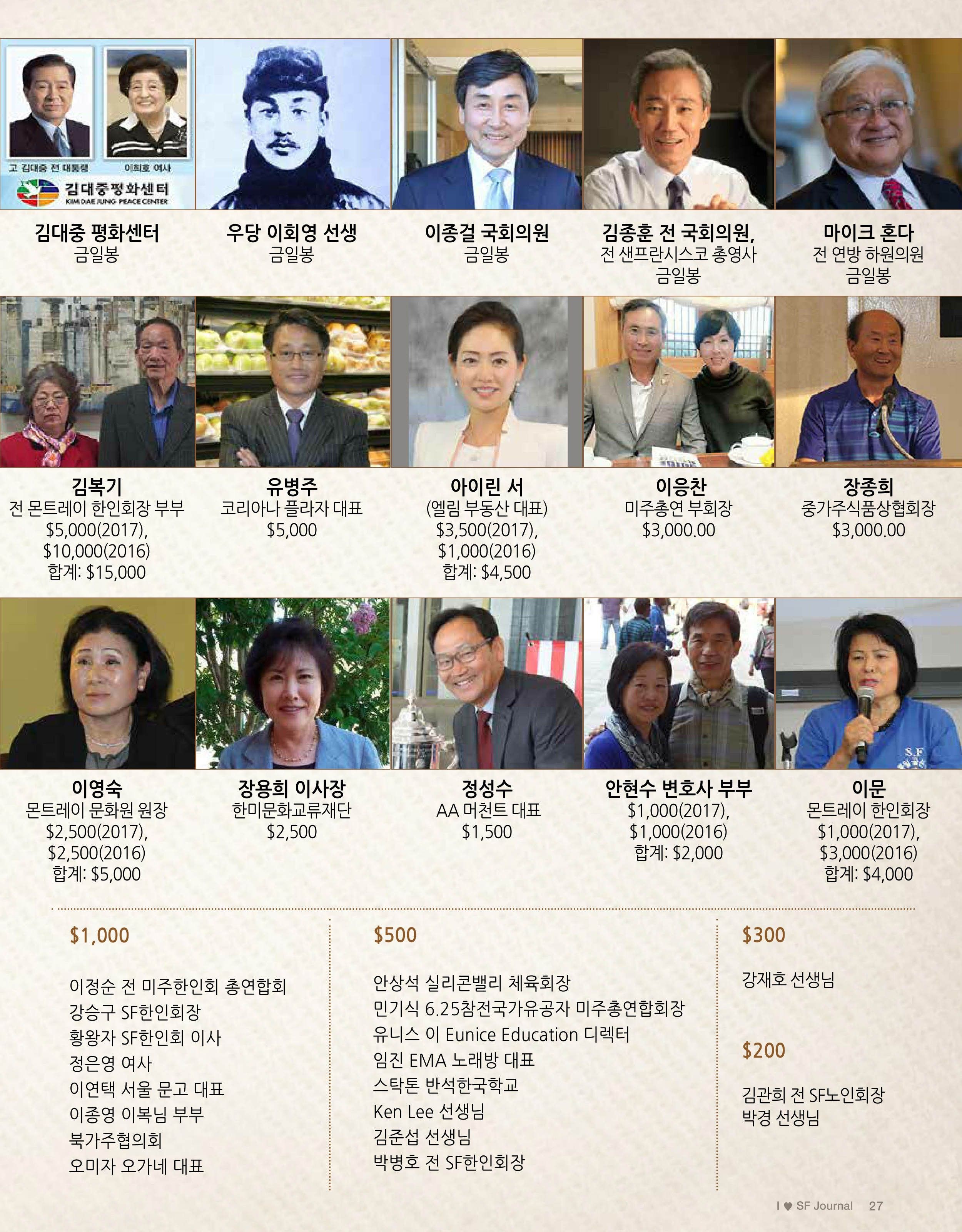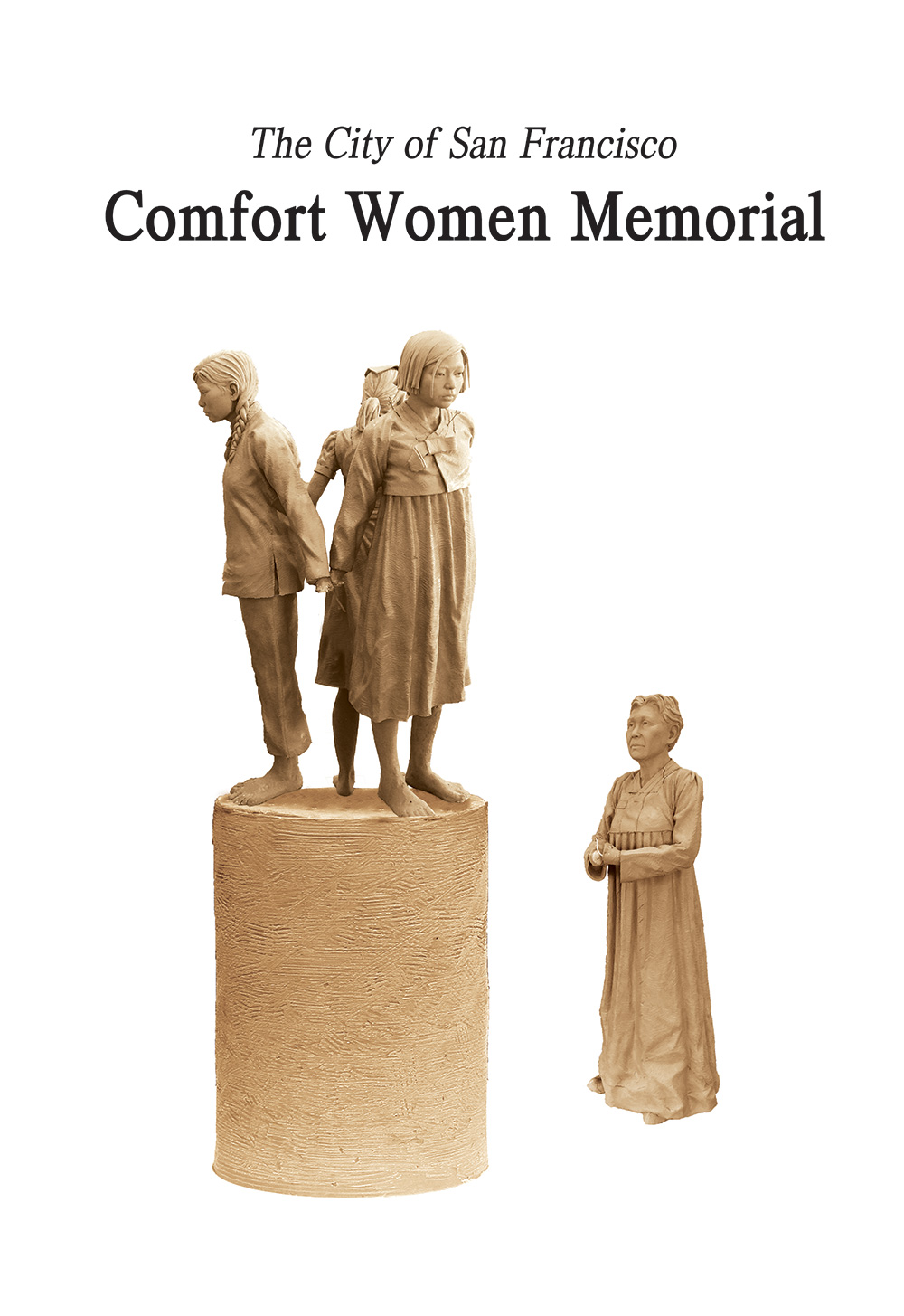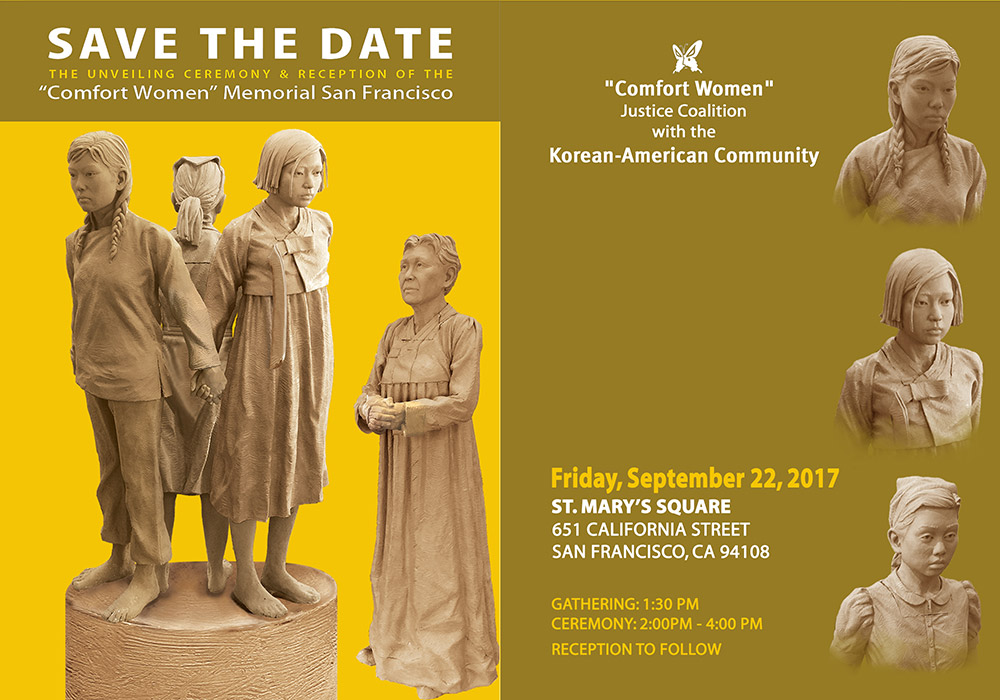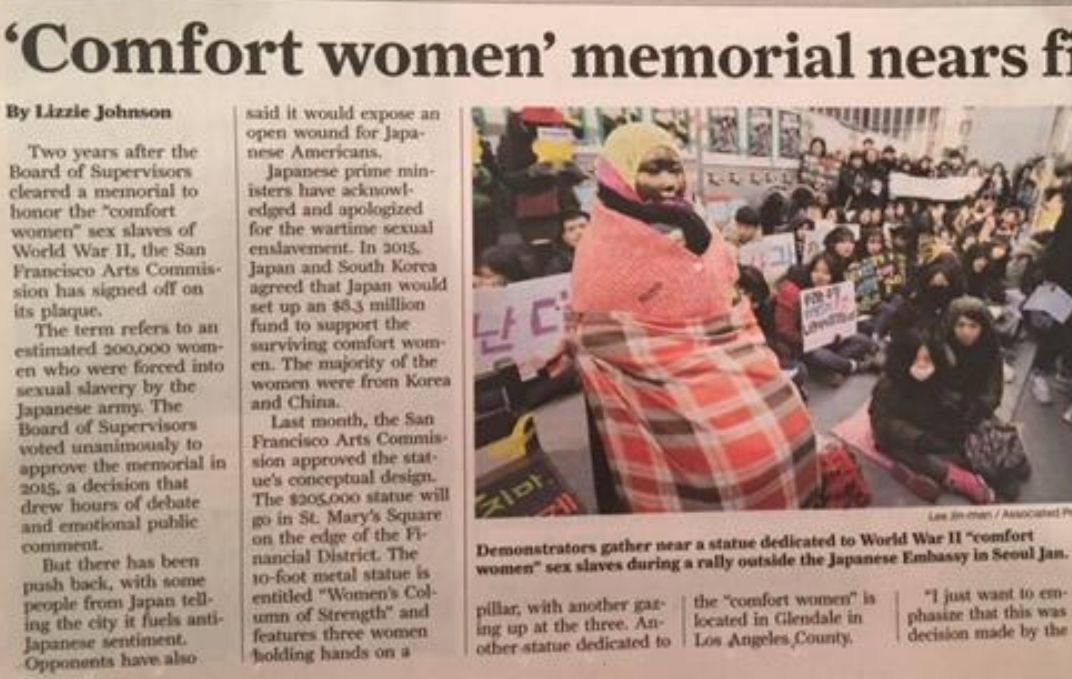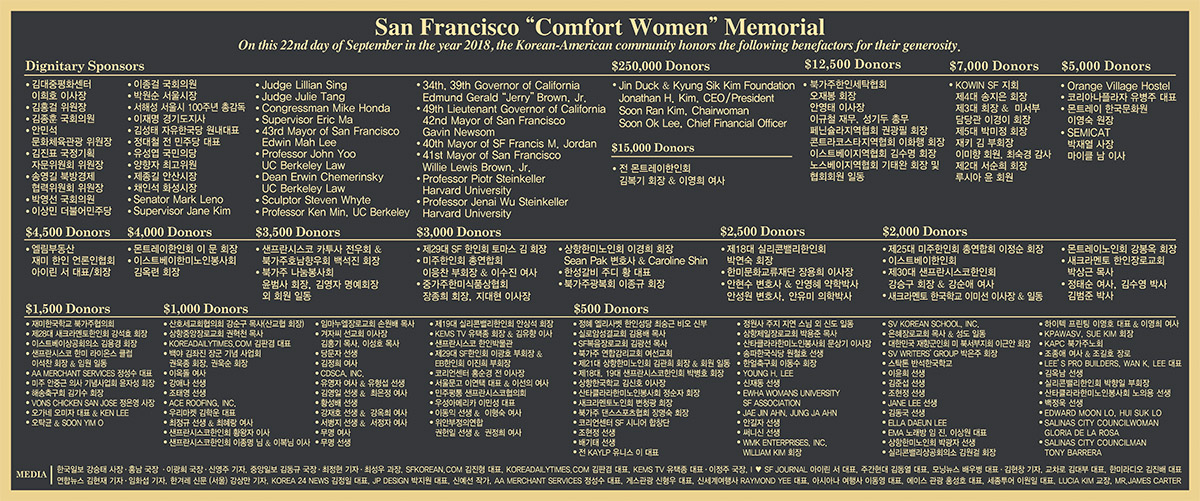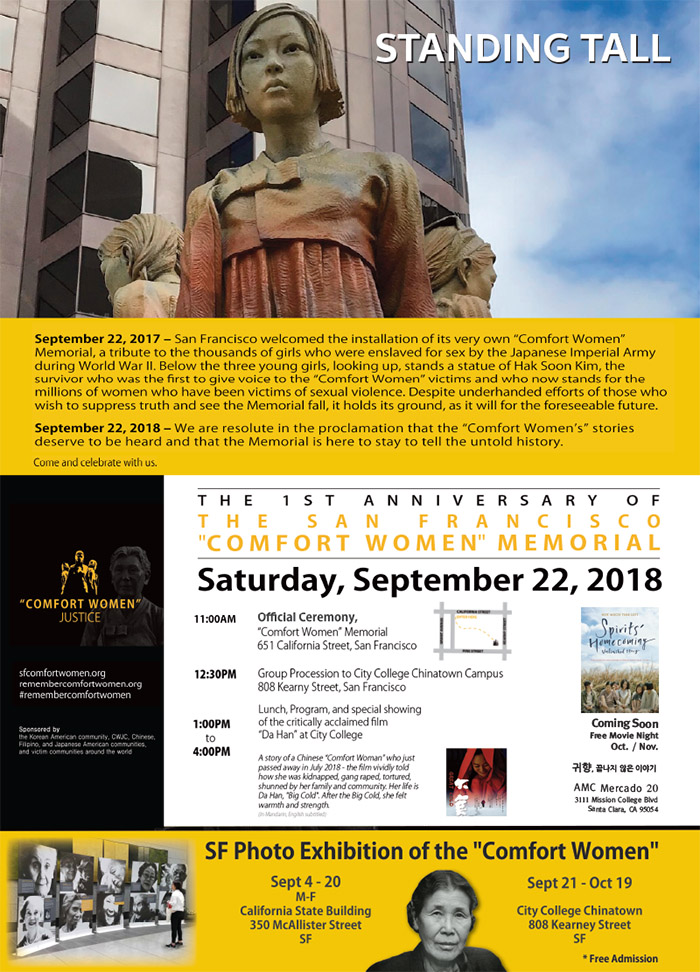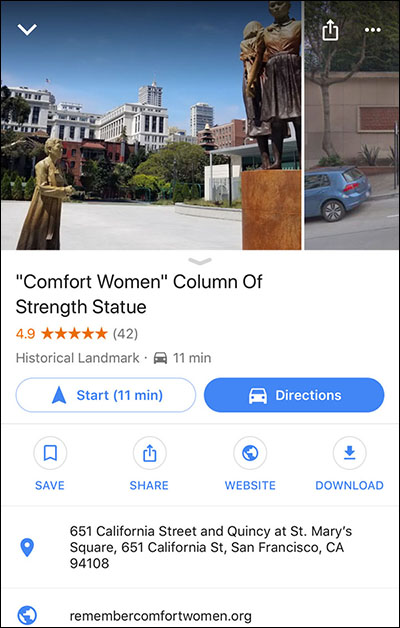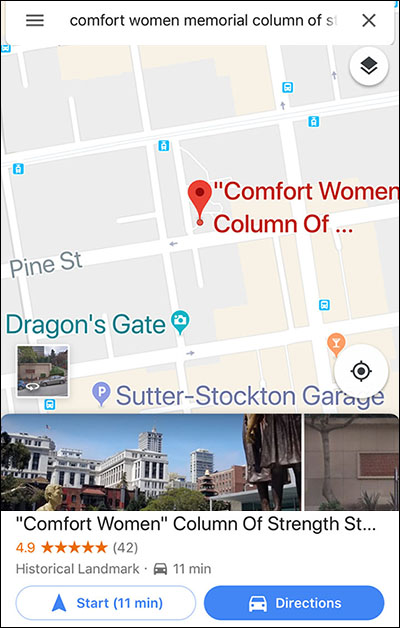"Comfort Women" is the Japanese Imperial government's euphemism for the women and children they trafficked as sex slaves between 1932 and 1945 during World War II. Most of the victims were Korean, although many also came from China, the Philippines, Indonesia, the Netherlands, Burma, Thailand, Vietnam, Malaysia, Australia, East Timor, Hong Kong, and Macau. While some were recruited by false advertisements promising work as house maids, factory workers and the like, the majority were abducted and violently coerced into sexual slavery for Japanese soldiers at government sponsored stations intended to improve army morale. It is estimated that some 400,000 women and children were forced to be sex slaves for Japanese soldiers and officers at these government-sponsored stations. The "Comfort Women" were often kept in sub-human conditions and suffered from starvation, physical and psychological abuse, disease, infections, and rampant STD's. Only about 25% of the victims survived the end of the war. Many had already died from their conditions and many more were executed before Allied troops would be able to find evidence of their existence. Along with their bodies, the Japanese government attempted to destroy all documentation and evidence that the "Comfort Women" had ever existed.
The survivors returned home bearing heavy burdens of psychological distress, physical ailments, and shame. Many lived out their days ostracized from family and community. Not until the 1990's did their stories begin to surface publicly. In 1990, the Republic of South Korea began to ask for amends from the Japanese government, and in 1991, Hak-sun Kim, a Korean "Comfort Women", became the first to share her story publicly. That year, the Japanese government publicly acknowledged that "Comfort Women" stations did exist during World War II. But since that time, especially during the governance of Japan by Prime Minister Abe Shinzo, there has been continuous disagreement and unrest between the Japanese government and the victim communities about coming to fair and just terms of resolution. Gradually, monuments for the "Comfort Women" are being built around the world to memorialize the victims and their communities and to educate new generations of the dangers of warfare and a global responsibility to protect human rights. The "Comfort Women" Memorial in the City of San Francisco was spearheaded by Korean, Chinese, and Filipino activists and philanthropists and is the first of its kind to be co-created by the 13 victim communities. Plans are underway to build sister statues in major cities of many of the former victim counties.
San Francisco's "Comfort Women" Memorial Stands for Victims of Sex Trafficking Saint Mary's Square, SF
On September 22nd, just two weeks before the "Me Too" movement, the Korean American Community and "Comfort Women" Justice Coalition inaugurated a monument in San Francisco dedicated to the victims of one of the largest and least known sex trafficking scandals of the 20th century?the "Comfort Women" sex slaves of World War II. These young girls, boys, and women from 13 countries were abducted and forced into sex servitude by the Japanese Imperial Army.
Many did not survive the brutal conditions they were kept in, and many more were systematically murdered before Allied Forces could discover them. Those few who remain are in their final years, still carrying the mental, emotional, and social trauma of their enslavement. The courageous Kim Hak-Sun is one of the rare survivors and the woman who broke nearly a half century of silence in August of 1991 to share her story publicly. Now, 27 years later, swept up in the maelstrom of the "Me Too" movement, the world is just beginning to wake up to the enormity of what happened to the "Comfort Women."
It is the wish of all survivors, their families and communities, and the sponsors of the memorial that the "Comfort Women" find peace and that their hard- ship be a cautionary tale for generations to come. As stewards of this monument, it is our intention to honor the sacrifices of the "Comfort Women" in ever widening circles. We hope that in so doing, we can be a voice of hope in the darkness for those 4.5 million women, children, and men who live as sex slaves today and for those countless others who live with painful memories and fear of sexual aggression. Knowledge is power, and the more we share the tragic story of the "Comfort Women", the more chances we have to help victims of sex trafficking in the world today.
Your choices matter. Many of you have donated to make this memorial a reality, and you have bravely taken responsibility for creating a better world for our children. As awareness of the "Comfort Women" grows in tandem with the "Me Too" movement, you will know that you too created this global shift in equality and human rights. Knowledge is powerfully preventative, and this is what we're here to do?to mobilize knowledge and reverse human trafficking, the fastest growing crime against humanity today.
Thank you to every single donor and supporter. Your voice and your contribution matter. Thank you to the "Comfort Women" Justice Coalition and especially to chairwomen Judge Lillian Sing and Judge Julie Tang, the visionaries of this memorial. Thank you to Congressman Mike Honda and Commissioner Eric Ma for unwavering support. And thank you to the esteemed leadership of the Republic of South Korea. It is time "We Too" are given a voice.
Jonathan H. Kim, Chairman
Jin Duck & Kyung Sik Kim Foundation
김한일 대표 김진덕 정경식 재단
